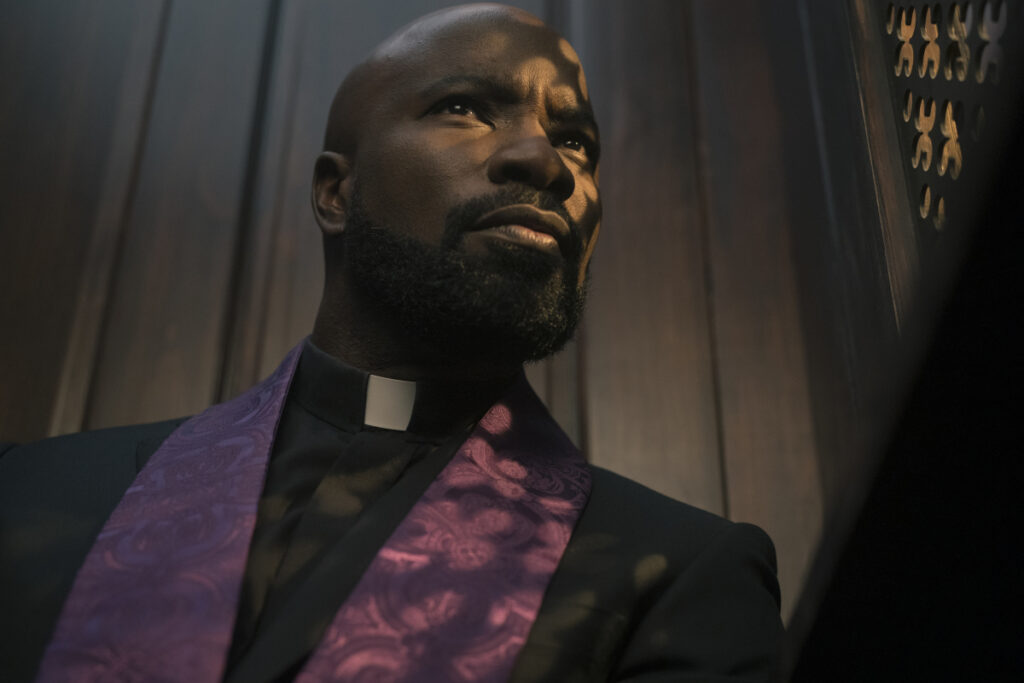The best show you’re probably not watching returns on Sunday, 6/12 with the third season premiere of the excellent “Evil” on Paramount+. After a first season that ran on CBS, the network pushed the show to its fledgling streaming service, which has struggled to carve out space in the original programming arena. On the one hand, this means fewer people are watching one of the best shows on TV than would have been even with low ratings on CBS, simply because of access. On the other hand, the freedom from network ratings expectations has led the program to become even more daring, and hopefully means it can run for years to come in the darkest corner of the content universe.

Created by the brilliant Robert and Michelle King (who also run the other best show on Paramount+, “The Good Fight,” a very different show narratively but another one that constantly subverts storytelling expectations), “Evil” is essentially a modern “The X-Files” with the supernatural and religious instead of the alien. The skeptic in this case is Dr. Kristen Bouchard (Katja Herbers), a forensic psychologist who has been hired to determine the veracity of potential miracles or demonic involvement. The believer is David Acosta (Mike Colter), a former journalist who is studying to be a priest and dealing with his own crises of faith. They work with a contractor named Ben (Aasif Mandvi), the logical mind who is supposed to prove the scientific explanations for what they uncover but increasingly finds himself questioning what he knows to be true. Causing trouble on the fringe is the incredible Michael Emerson as Dr. Leland Townsend, a literal vessel for evil, and Kristen’s mother Sheryl (Christine Lahti), who is both committed to her daughter and fascinated by her rival.
The ten-episode third season opens precisely where the last season ended, as Kristen and David seem on the verge of giving into their strong mutual attraction. Of course, in “Evil” fashion, that doesn’t play out as expected, and the show centers serious issues for David in the early part of the season, especially after he’s approached by an emissary for the Vatican to perform some tasks. The Catholic Church is presented on “Evil” almost like an organization that would employ the Cigarette Smoking Man in “The X-Files,” operating in the shadows to amplify acts of faith and hide examples of unchecked evil.
The writers of “Evil” unpack its title in different ways every episode, and that’s the main joy of the show, seeing how they can find examples of evil in everything from memes to a game that looks like “Animal Crossing” to crypto currency. What does the word evil mean? And how does it weave its way through everyday life? It’s one of the most sharply written shows on TV, and I adore how it embraces the lost art of episodic storytelling. Much like its inspirations, episodes often present standalone stories but they work in the fabric of the overall piece. They’re like patches in a quilt, great on their own but also easily appreciated in the context of the cumulative piece.

For example, the season premiere co-stars the great Wallace Shawn as a man who is on the verge of death. A team of technicians want to use him to prove the weight of the human soul, notoriously rumored to be 21 grams. Let’s just say that the experiment doesn’t end the way anyone expects, just proving once again the creativity of the writing on this show. I love the cumulative impact of “Evil.” If the end of the season premiere proves something, what does that mean about the human condition? No wonder Kristen, David, and Ben seem more questioning than ever of the world around them—they have a reason to wonder what’s going on out there that grows with each case.
And don’t we all right now? Without getting too philosophical, it feels like “Evil” is saying more about the state of the world than nearly any show on TV. It may not be as bluntly political as “The Good Fight,” but commentary on “where we are” is embedded in the show from the evil of hawking worthless crypto to the way doomscrolling is its own form of soul-crushing evil. It’s a show that’s alive with ideas, and has a cast that’s entirely on the same page, including great supporting turns from Andrea Martin (upgraded to a regular this year), Kurt Fuller, the wonderful young actresses who play Kristen’s four daughters, and the great Boris McGiver, who seems to be playing a larger role this year after the tragic passing of Peter Scolari.
People who haven’t seen it likely wrote “Evil” off as another dull supernatural show, but this is one of the smartest programs on TV, a show that’s constantly surprising viewers in a way that’s like nothing else on the air right now. It’s as comfortable unpacking an average family conversation about internet safety or economic concerns between a husband and wife as it is presenting a literal demon haunting a young couple. And it never goes exactly where you expect it to go. Evil rarely does.
Three episodes screened for review.












